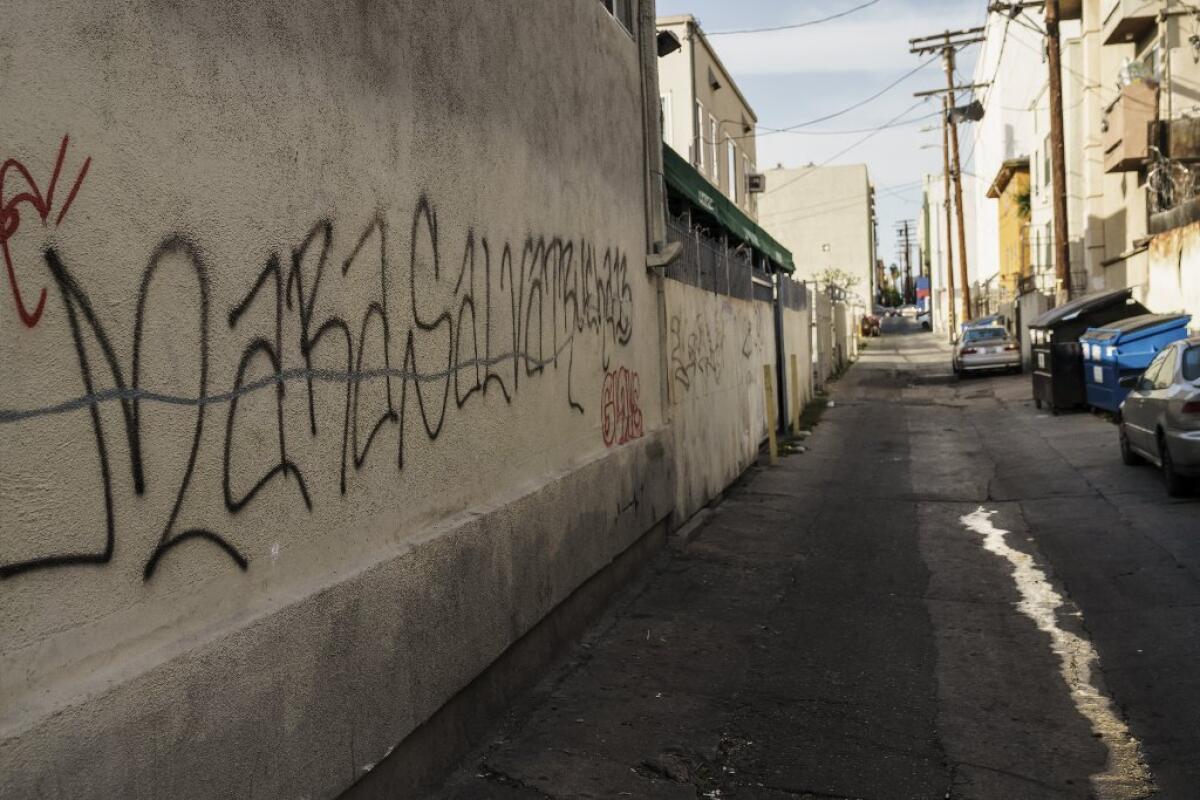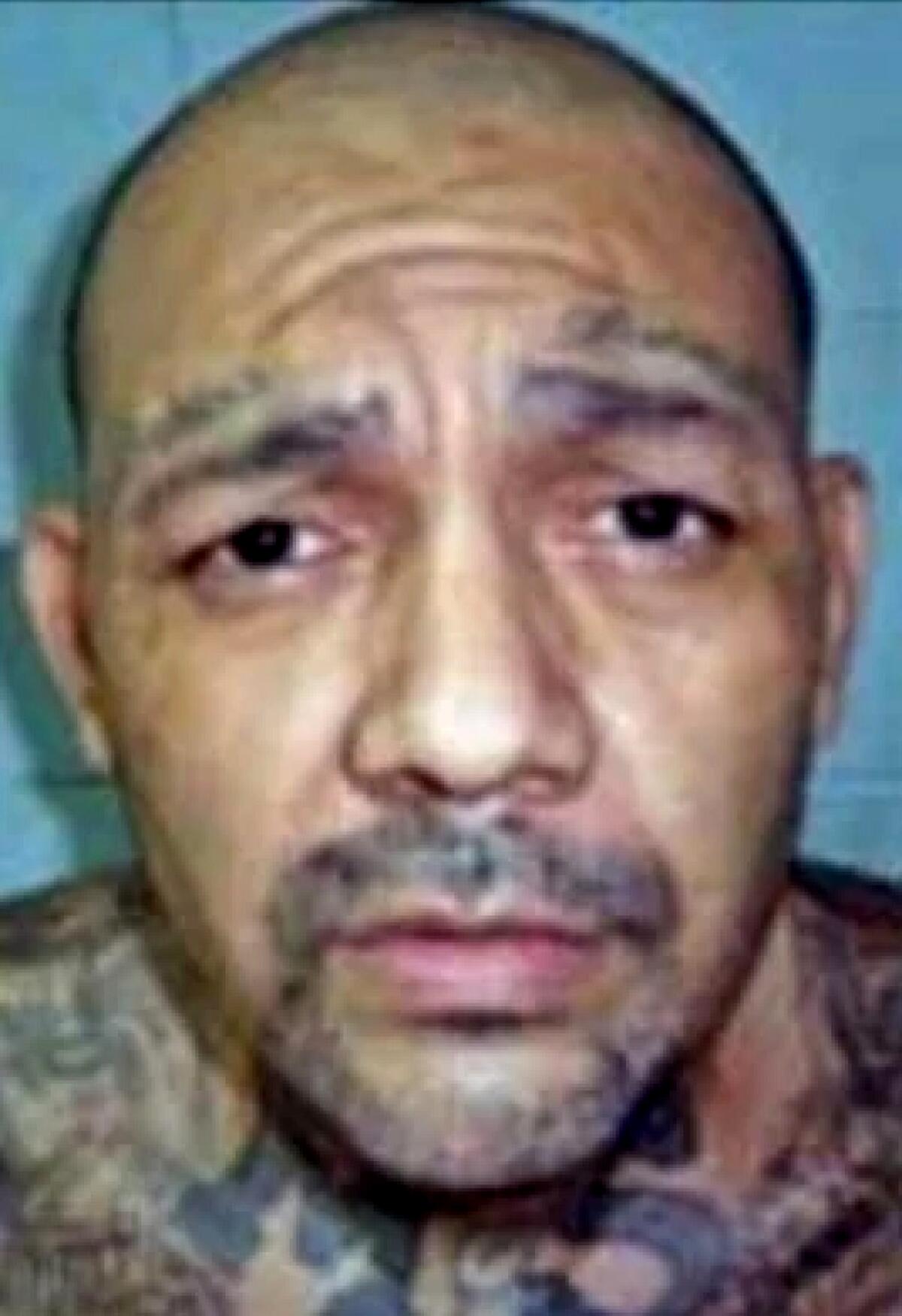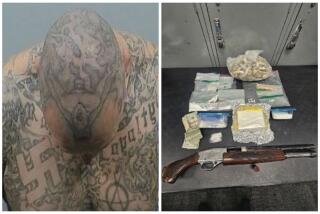MS-13 leader, one of FBI’s most wanted fugitives, arrested at California-Mexico border

A senior leader of the MS-13 street gang who was one of the FBI’s most wanted gang fugitives was quietly arrested earlier this month at the California-Mexico border on narco-terrorism charges, authorities said.
Freddy Ivan Jandres-Parada, 48, also known as Lucky De Park View, was taken into custody on March 7 by federal authorities at the San Ysidro Port of Entry in San Diego County, sources told The Times. Federal officials did not disclose any details about the arrest.

Jandres-Parada’s apprehension, first reported by Court Watch, comes more than three years after his indictment in December 2020 on terrorism offenses relating to the direction of MS-13’s criminal activities in the U.S., El Salvador, Honduras and Mexico for nearly two decades, according to federal court documents.
He is a member of MS-13 ’s leadership council, initially known as the Twelve Apostles of the Devil and later renamed Ranfla Nacional, which controls thousands of MS-13 members worldwide, authorities said.
He and 13 other MS-13 leaders were indicted in the Eastern District of New York for their roles in dozens of killings, various other acts of violence, intimidation and material support of terrorists in El Salvador and throughout the United States, according to federal court documents.
The Ranfla Nacional “controlled the process for recruitment of new members and advancement to higher ranks.” It also issues “‘green lights’ to execute police officers, rivals, disloyal gang members or anyone it considers a snitch,” according to the indictment.
MS-13 killings are often carried out with machetes, the gang’s weapon of choice, in order to send intimidating messages to enemies and those deemed to be disloyal.
Jandres-Parada’s rise in leadership mirrors the rise of MS-13, also known as La Mara Salvatrucha. Born in Jiquilisco, El Salvador, he became part of MS-13 as it evolved from a street gang in the Westlake area near downtown Los Angeles in the 1980s. He was convicted in 1994 of trafficking narcotics in L.A. County and sent to state prison for three years, according to court documents.
In L.A., more than a dozen MS-13 cliques are based in historically immigrant neighborhoods such as Westlake, Pico-Union, Koreatown and Hollywood, authorities said.
Soon after he was released, Jandres-Parada was arrested again, for possession of a firearm, and sentenced to three years in prison, authorities said. Like many in MS-13, he was sent back to El Salvador, where the gang grew into a massive force with political power.
As MS-13 gang members were returned to Central America, their numbers expanded across that region, even taking control of local prisons. Some of those who immigrated to the U.S. set up new cliques, from Virginia to Tennessee to Nevada, according to the court documents. The gang structure is fueled by cash from drug trafficking, extortion and kidnappings, prosecutors said.
When Jandres-Parada returned to the U.S., he was apprehended again and served time for illegal reentry before being deported again to El Salvador. There, authorities say, he continued to run MS-13’s extensive transnational operations.
Under the gang’s power structure, bottom-rung cliques operate in regional tiers and zones, whose leaders report to street and prison bosses, who then report to the Ranfla Nacional. According to the indictment, more than 200 cliques exist in the U.S., El Salvador, Honduras and Guatemala, and the gang has even expanded into Mexico, working with various drug cartels.
In New York, Jandres-Parada faces charges of conspiracy to provide and conceal material support and resources to terrorists, conspiracy to commit acts of terrorism transcending national boundaries and conspiracy to finance terrorism.
According to the indictment, the MS-13 hierarchy carries political influence across Central America and for a time even reached a truce with El Salvador’s political leaders. By 2016, the gang was conducting militarized training operations for its members that included the use of improvised explosive devices, according to authorities.
Meanwhile, Jandres-Parada is not the only MS-13 leader who has been caught in recent months. In November of 2023, Elmer Canales-Rivera, also known as Crook de Hollywood, was arrested at George Bush Intercontinental Airport in Houston.
“We allege that Elmer Canales-Rivera, a founding member of MS-13’s ‘Twelve Apostles of the Devil,’ bears responsibility for the gang’s efforts over decades to terrorize communities, target law enforcement, and sow violence here in the United States and abroad,” U.S. Atty. Gen. Merrick B. Garland said in a statement after his arrest.
Nearly all MS-13 inmates in federal custody are being held for their own protection at a single penitentiary in Lewisburg, Pa., according to sources who were not authorized to discuss prison security arrangements and requested anonymity.
More to Read
Sign up for Essential California
The most important California stories and recommendations in your inbox every morning.
You may occasionally receive promotional content from the Los Angeles Times.











